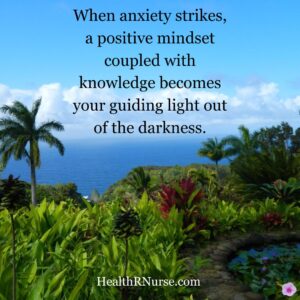Anxiety

Understanding Anxiety: A Guide to Managing Your Mental Well-being
Table of Contents
Introduction
Today, we will explore the topic of anxiety and its impact on our mental well-being. Anxiety is a prevalent condition that can affect individuals of all ages and backgrounds. In this guide, we will explore what anxiety is, its causes, signs of anxiety, and most importantly, how to maintain a positive mindset and effectively manage anxiety in our daily lives. It is crucial to seek help and support from a healthcare professional if you experience anxiety symptoms.
What is Anxiety?
Anxiety is the feeling of worry, fear, or unease that arises when we encounter stress or perceive a potential threat. It is a natural response in our body to prepare us for potential dangers. While it is normal to experience anxiety at times, excessive worrying or constant fear may indicate an anxiety disorder. It is important to distinguish between everyday worries and anxiety that significantly affects our daily lives.
Causes of Anxiety
Anxiety can stem from various sources, including our body, environment, and thought patterns. Let’s explore some common causes of anxiety:
- Biological Factors: Anxiety can be influenced by genetic factors or the presence of certain chemicals in the brain that make individuals more susceptible to anxiety.
- Environmental Factors: Traumatic events, significant life changes, work or school-related stress, and other life circumstances can contribute to feelings of anxiety.
- Psychological Factors: Our self-perception and worldview can impact anxiety levels. Factors such as low self-esteem, excessive worrying, or past difficult experiences can increase anxiety.
Our body also plays a role in anxiety. Neurotransmitters, chemicals in our brain that facilitate communication between nerve cells, can affect anxiety levels. Imbalances in neurotransmitters like serotonin, GABA, and norepinephrine, which regulate mood, sleep, and emotions, can contribute to anxiety.
Physical Symptoms of Anxiety
Anxiety can manifest in various physical symptoms. Some common physical symptoms of anxiety include:
- Rapid Heartbeat:
- Shortness of Breath
- Chest Tightness:
- Dizziness
- Sweating:
- Trembling: Uncontrollable
- Gastrointestinal Discomfort
If you experience any of these symptoms, it is important to consult your doctor or healthcare provider for professional guidance and support.
Emotional Symptoms of Anxiety
Anxiety can also present with various emotional symptoms. Here are some common emotional signs of anxiety:
- Restlessness
- Irritability
- Excessive Worrying
- Sense of Impending Doom
- Difficulty Concentrating
- Mood Swings
Behavioral Symptoms of Anxiety
Anxiety can also manifest in certain behavioral patterns. Here are some common behavioral symptoms of anxiety:
- Avoidance
- Restlessness and Hyperactivity
- Seeking Reassurance
- Irritability and Agitation
- Sleep Problems
- Changes in Appetite
- Substance Use
- Compulsive Behaviors
Remember, not everyone will experience all of these symptoms. If you or someone you know is struggling with anxiety that significantly impacts daily life, it is advisable to seek help from a mental health professional. They can provide an accurate diagnosis and recommend appropriate treatment options.
Strategies for Managing Anxiety
Now that we have a better understanding of anxiety and its symptoms, let’s explore some strategies for managing anxiety and reducing the severity of anxiety attacks. Here are some steps to take when experiencing overwhelming anxiety:
- Practice Deep Breathing: Engage in deep breathing exercises to calm your body and mind and promote relaxation.
- Distract Yourself: Engage in activities that divert your attention from anxious thoughts and promote relaxation. Listen to calming music, read a book, solve puzzles, or participate in hobbies you enjoy.
- Avoid Caffeine and Stimulants: During an anxiety attack, it is advisable to limit or avoid caffeine, coffee, energy drinks, and sodas, as they can increase restlessness and anxiety.
- Reduce Noise and Stimulation: Minimize exposure to loud noises, crowded places, or excessive sensory stimulation. Seek a quiet and calm environment, and consider using earplugs or noise-cancelling headphones.
- Practice Self-Compassion: Be kind and compassionate toward yourself during an anxiety attack. Remind yourself that anxiety is temporary and that you are doing your best.
- Engage in Physical Activity: Take a walk or engage in gentle exercises to release tension and reduce anxiety symptoms. Physical activity stimulates the release of endorphins, natural mood boosters.
- Visualization Techniques: Imagine yourself in a calm and peaceful place. Visualize vivid details of a serene setting, such as relaxing on a beach. Visualization can induce relaxation and alleviate anxiety.
- Maintain a Positive Mindset: This can help you regain control. Challenge negative thoughts.
Remember, everyone’s experience with anxiety is unique. It is important to find the strategies that work best for you and adapt them to your specific needs.
Seeking Professional Help
If you find it difficult to manage your anxiety symptoms effectively, it is crucial to consult a doctor or mental health professional. They possess the expertise to diagnose your condition accurately and determine the most suitable treatment options. Medications can be helpful in addressing chemical imbalances or providing additional support. Please note that I am not qualified to prescribe medications, so it is important to consult your healthcare provider for personalized guidance regarding medication-related details.
Remember, only your healthcare provider can provide medical advice and determine the appropriate treatment options for your specific situation. Therefore, if you find it challenging to manage your anxiety symptoms effectively, I strongly encourage you to consult a doctor or mental health professional. They can offer the support and guidance you need to manage your anxiety and explore medication options, if necessary.
Conclusion
In conclusion, anxiety is a common condition that can affect anyone. However, there are strategies and support available to help you manage it effectively. Discover what works best for you, seek guidance from your healthcare provider, and prioritize your mental well-being. Remember, taking care of your mental health is just as important as taking care of your physical health. So let’s empower ourselves with knowledge, seek help when needed, and prioritize our well-being.
Remember, if you or someone you know is struggling with anxiety, reach out for support. You don’t have to face it alone. Take care of your mental health, prioritize self-care, and seek professional help when needed.
The information provided here is for general informational purposes only and is not intended as medical advice, diagnosis, or treatment. It is not a substitute for professional medical advice, diagnosis, or treatment. Always seek the advice of your physician or other qualified health provider with any questions you may have regarding a medical condition or treatment.

